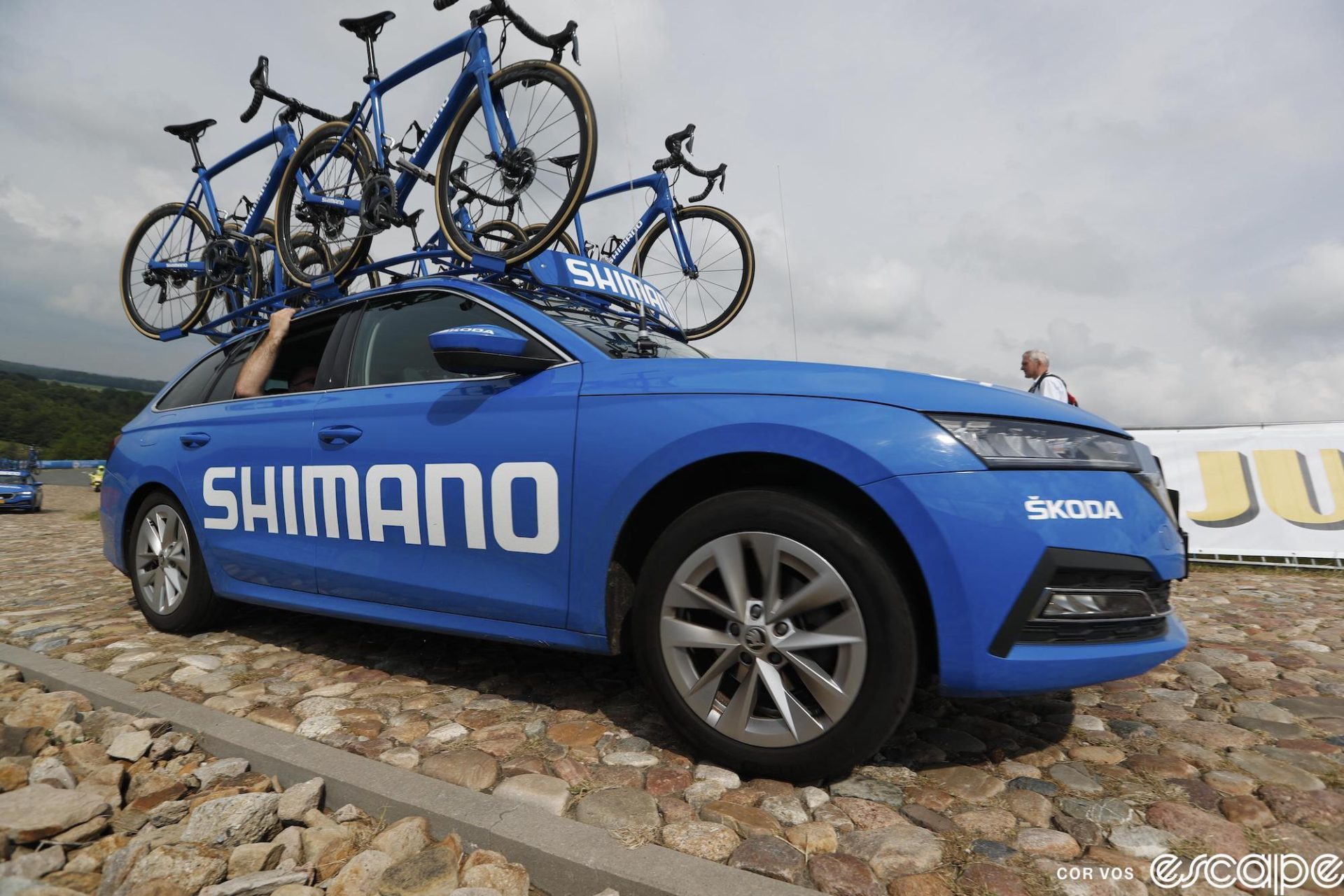The Telegraph is reporting it has uncovered evidence of illegal migrant worker exploitation and modern slavery by a manufacturer contracted by Shimano.
The accusations are based on an investigation conducted by The Telegraph into Kwang Li Industry, a manufacturer and Shimano supplier based in southern Malaysia. The Telegraph interviewed current and former Kwang Li employees who claim they have been subjected to “physical abuse and threats, unlawful salary deductions and recruitment fees, and unpaid suspension.”
According to The Telegraph, Shimano has opened an investigation into the employer and is working to remediate the workers “as soon as possible.”
Many of the employees are migrant workers procured by agencies from poor countries on the promise of well-paid jobs, with a reported 207 Nepalese workers recruited in January and February this year.
That promise often turns to a dim reality of recruitment fees paid for on high-interest loans and wage deductions for accommodation and food that reduce pay below legal minimum wage levels. Furthermore, The Telegraph reports many of these workers have their passports confiscated, effectively trapping them in Malaysia.
Known as “debt bondage,” these arrangements trap workers in a vicious circle of working low-pay jobs to service a high-interest debt to their employer. The report also highlights incidents of alleged abuse, with one employee reportedly struck on the face, verbally abused, and suspended for a month unpaid, having made a “very small mistake,” according to two other workers. The Telegraph quotes labour rights specialists, who fear workers may be further exploited in attempts to pay off debts, describing the reported abuse as amounting to “modern slavery.”
Kwang Li “strongly” denies these accusations. The company, which produces and assembles bike parts, was founded in 1992, and sits just 1,000 meters from Shimano’s own Malaysian subsidiary factory in Pekan Nanas in Johor state, near Singapore.
The Telegraph cites an upsurge in demand during the COVID-19 pandemic and manufacturers and suppliers’ attempts to meet said demand for an increase in labour demand. Kwang Li reportedly contracted a Nepalese recruitment agency to procure “251 male workers for its factory in south Malaysia.” The report claims the men were to be paid “1,500 Malaysian Ringgit (RM) per month, roughly £410 – and be employed on a two-year contract.” That is the legal minimum wage in Malaysia.
A document obtained by The Telegraph suggests Kwang Li had agreed to pay a service charge to the recruiters. However, those workers claim they were first charged “300,000 Nepalese rupee (£1,855) in recruitment fees – covering medical screening, flight tickets, service charges and more” and later given reduced working hours, with allegations up to 82 workers were “forced to resign” this summer as market demand dropped.
If true, such forced resignations left the recently hired employees without a job or income just six months after relocating to Malaysia. Meanwhile, said workers still face repaying the loan to cover the “recruitment fee.” One worker claiming he was forced to resign explained that “the lender is asking to pay back the loan but I don’t have any income, any job, any work.”
According to a memorandum between Nepal and Malaysia, all labor recruitment fees for migratory workers must be paid by the employer. Further, in 2022, Malaysia became the second ASEAN member nation to ratify the International Labor Organization’s protocol on forced labor, which remains a persistent practice in some Southeast Asian countries, including in the outdoor apparel industry.
Kwang Li Industry said it “had no knowledge that the workers were asked to pay any recruitment fee [at] any point during the process” and denied allegations workers were forced to resign.
But The Telegraph claims its analysis of employee salary slips and contracts shows illegal salary deductions, with some workers having “lost a third of their monthly wage to deductions, including for the use of the factory canteen and a generalised ‘saving’ fee.” The report suggests one worker received just £160 for a month’s work in May this year.
The Telegraph quotes “private emails” shared with it as saying the practice of deducting for canteen use and savings had ceased from June 2023 after being advised by the Malaysian government.
The report also quotes workers as saying they had been suspended for up to 15 days without pay, for mistakes or failing to meet targets, while others were apparently threatened with deportation back to Nepal.
A spokesperson for Shimano told The Telegraph, “This is a serious accusation and it stands against what we believe in at Shimano. We are currently investigating the matter with the relevant parties and will use appropriate action to ensure the situation is resolved.”
After this story published, Shimano responded to Escape Collective‘s request for comment on The Telegraph report and the allegations, including its audit processes for third-party suppliers, with essentially the same statement it gave The Telegraph. Escape Collective will continue to follow up on that resolution.
Did we do a good job with this story?

